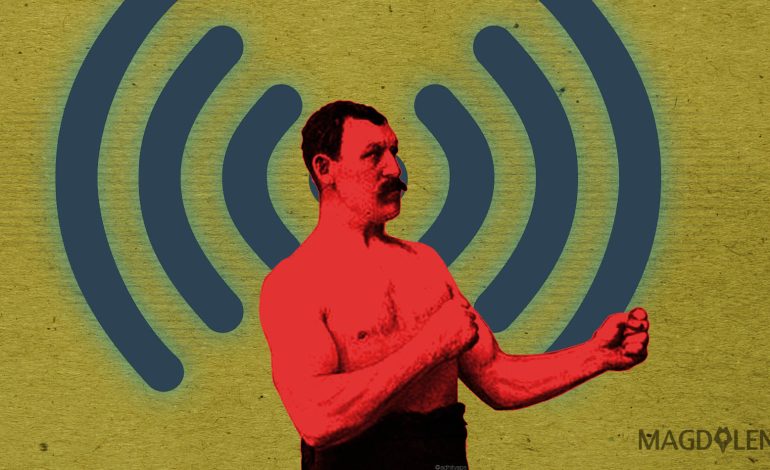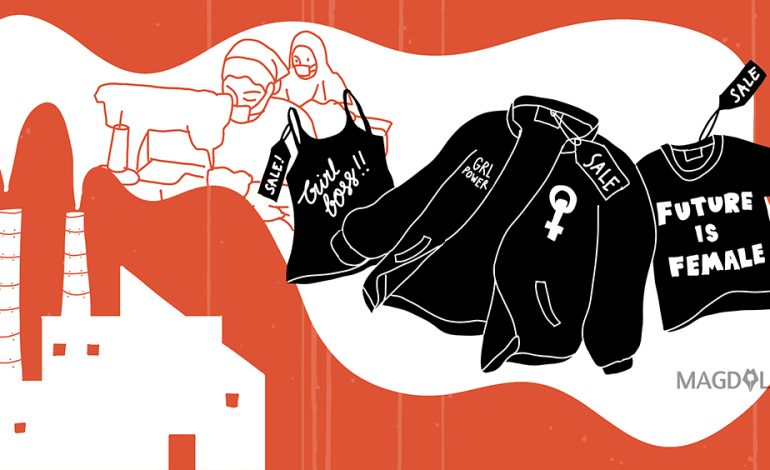Traditional Masculinity Is A Vague, Unhelpful Term We Should Abandon

Most of us think we know what we mean when we talk about “traditional masculinity”. A term commonly used to describe a broad range of men’s traits and behaviour, it includes things like violence and aggression, emotional restraint, and hunger for power and dominance, to more positive characteristics such as reliability, stability, physical strength, independence and integrity.
Men’s homophobia and misogyny can be framed as traditional masculinity, yet when men sacrifice their comforts and health to provide for family, or give their lives to defend their country, this is regarded as traditional masculinity too. The term has many meanings, yet these are rarely explained.
Also read: How Masculinistic Approach of Militarism Has Muddled the Papua Issue
South African psychology researchers Brittany Everitt-Penhale and Kopano Ratele maintain that if we want to explore traditional masculinity in a specific context or culture we should not approach it as “a static set of features associated with men that has been timelessly passed down through generations”. In other words, we need to look at its use in its context – geographically, culturally and within specific periods of time.
My work looks at how masculinity is defined, experienced and negotiated by Russian men living in Russia and Russian immigrant men in the UK. I used to refer to the term “traditional masculinity” to talk about certain views and attitudes of my research participants, but over time I have come to re-evaluate it.
What Are We Talking About?
When we refer to traditional masculinity, which tradition do we have in mind? The Buddhist Bodhisattva vow – the commitment to put others before oneself? Or the Jewish tradition of niddah where men can’t hold hands or hug their wives during or the week after menstruation? Or do we think of the famous English stiff upper lip? There is a wide spectrum of masculinities in any society alongside a plethora of cultural traditions.
Approaching “tradition” as something singular and static doesn’t help us to understand men and masculinities in global and superdiverse contexts.
Journalists, activists, academics and organisations such as the European Institute for Gender Equality, the World Health Organisation and UN Women often overlook these nuances. It is commonly stated that traditional masculinity reflects old-fashioned ideals of manhood based on the cult of power, ownership, homophobia, sexism, racism – effectively (and falsely) constructing these phenomena as things of the past.
Also read: Fetishizing Gay Relationship: When Ship and Fan Fiction Turn Toxic
The label is therefore used to describe some men’s behaviour and attitudes as “stuck in the past” or “backward”. This logic suggests that the opposite of traditional masculinity would be modern masculinity – non-violent, enlightened, caring, compassionate, supportive of women’s emancipation and sexual freedoms.
Imperial views
It is common in western commentary to call non-western and migrant men traditional, portraying them as stuck in oppressive and backward gender roles. Post-colonial theorist Gayatri Chakravorty Spivak famously captured how white British colonisers in India portrayed brown Hindu men as a problem that needed fixing: “White men are saving brown women from brown men.”
This kind of binary thinking about traditional and modern masculinities is troubling. It conflates chronological and social progress, sustains division of the world into “the west and the rest” and, as I have pointed out in previous research, popularises the assumption that every country will go through the same stages of development and eventually acquire the same levels of gender equality and sexual liberation as the western world.
Conflating a European understanding of gender and sex with the notion of “progress” and imposing it on the diverse societies of colonised countries was a tactic used by European colonisers.
Nigerian scholar Oyeronke Oyewumi describes how the British “civilisational” mission brought gender discrimination to Yoruba society, one of the three largest ethnic groups in Nigeria. Before British colonisation, Yoruba women had occupied leadership positions and owned land. Conversion to Christianity promoted strict separation between the world of men and that of women and gradually led to women’s exclusion from public life, education, trade and land ownership.
It’s important to remember that all countries and societies in any period exist in one historical time, yet systems such as imperialism and capitalism continue to stigmatise boys and men who are poor, resistant to western values and beliefs or racialised (meaning, reduced to racist stereotypes) as backward or traditional.
While masculinity is a historically changing concept, we need to bear in mind that dominant masculinities have been shaped by colonialism, imperialism and capitalism. Australian sociologist Raewyn Connell writes that masculinities of the French and British empires were:
Bound up with enabling violence – violence sufficient to overcome the considerable military capabilities of the colonised societies … [imperial masculinities] adapted to the need to dominate a colonised population.
Violence against racialised “others” in the name of civilisational progress continues today in the states with pronounced neo-imperial ambitions such as the US and Russia. So tradition is hardly enough to understand or explain gendered violence, domination or risk-taking behaviour among men in post-imperial states.
Contemporary Russian masculinities reveal the complexity of the issue. Scholars see Russian masculinities as traditional, patriarchal and macho. Yet my study demonstrates that Russian men think they are not as “progressive” as European men, but are far less “backward” and “traditional” than Arab or Muslim men.
Also read: Football as the Last Bastion of Masculinity
In essence, such thinking has nothing to do with tradition. It is the same Eurocentric hierarchy of modernity/backwardness in which Russian men see themselves as being somewhere in the middle.
The language we use to talk about social problems associated with men’s aspiration to power and control is critical. Although a seemingly convenient shorthand, the term traditional masculinity is unhelpfully broad, rooted in the history of colonialism and works to deem masculinities of migrants and non-western countries as something that needs to be remedied.
In a nutshell, the term traditional masculinity feeds racism and imperialism. We need to decolonise the discussion and use a more nuanced language when talking about men’s lives and behaviours.![]()
Marina Yusupova, Lecturer in Sociology, Edinburgh Napier University
This article was first published on The Conversation, a global media resource that provides cutting edge ideas and people who know what they are talking about.






















